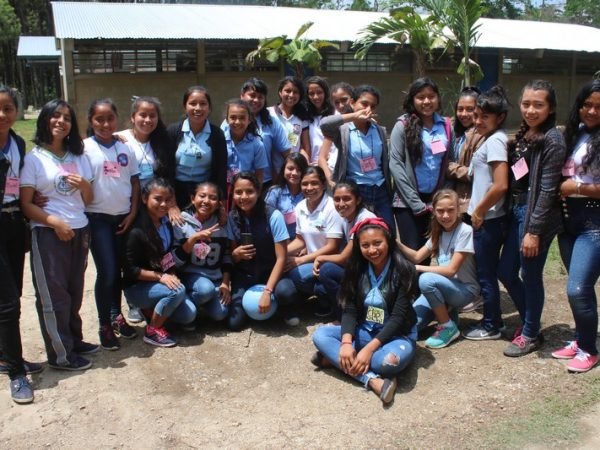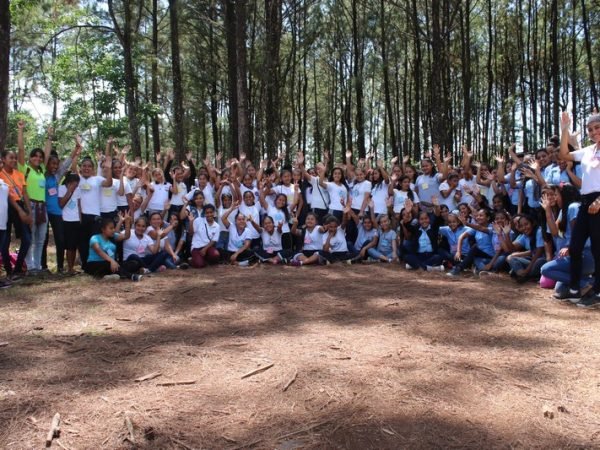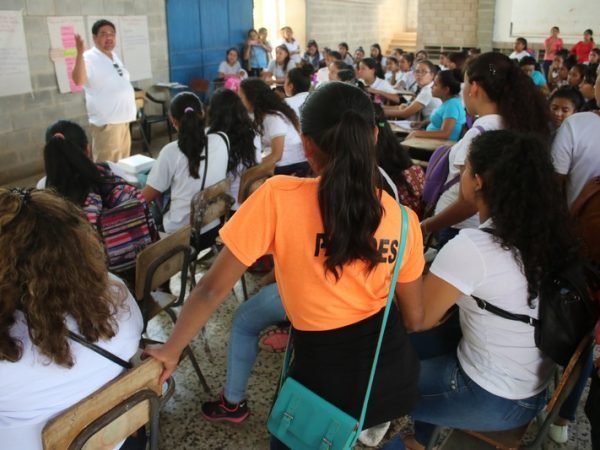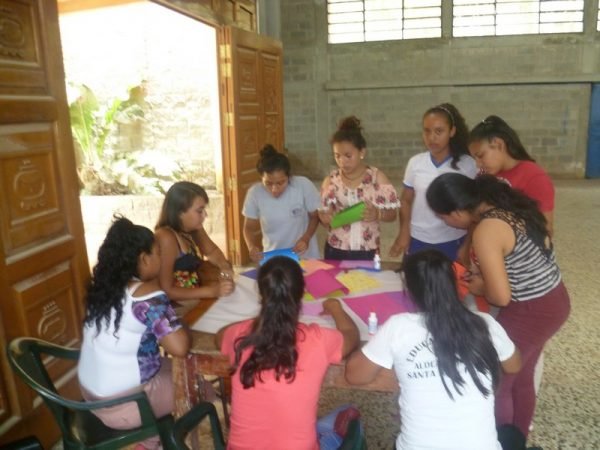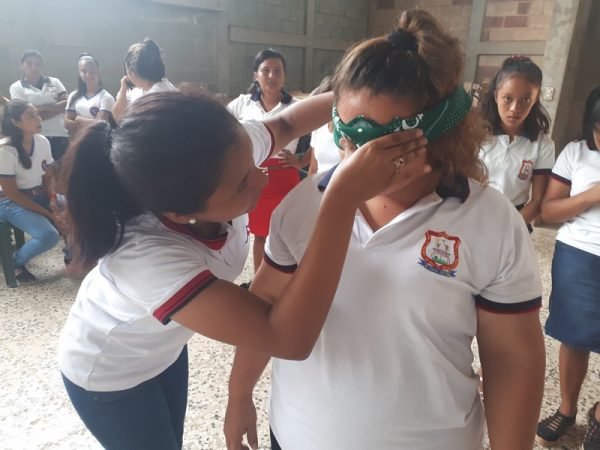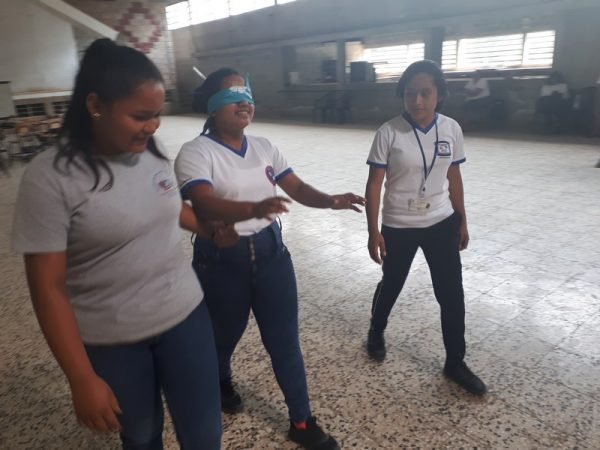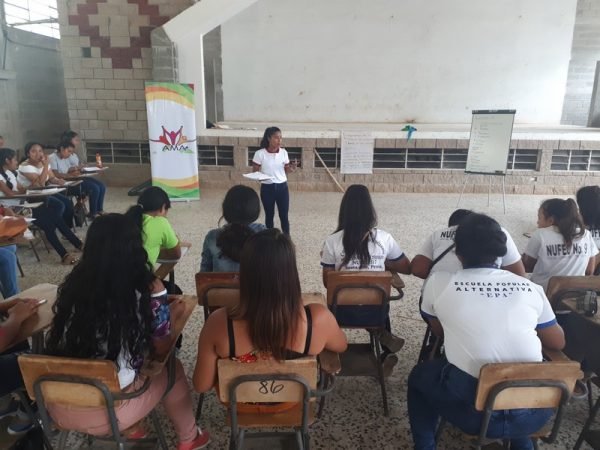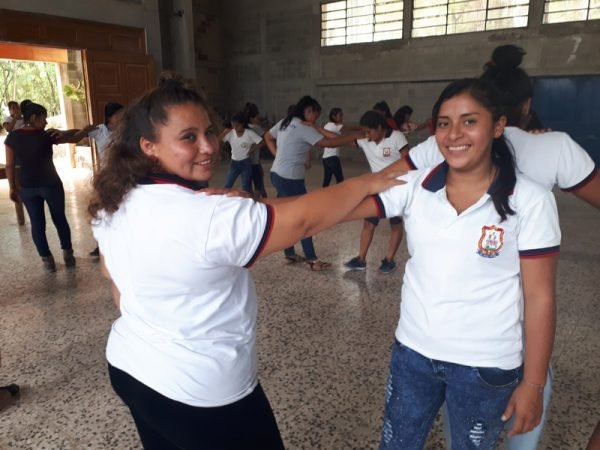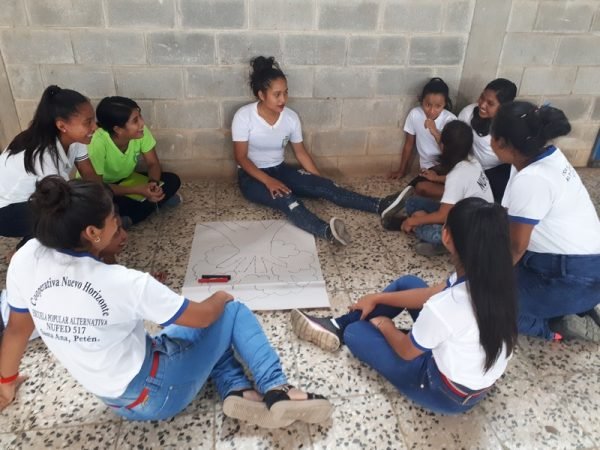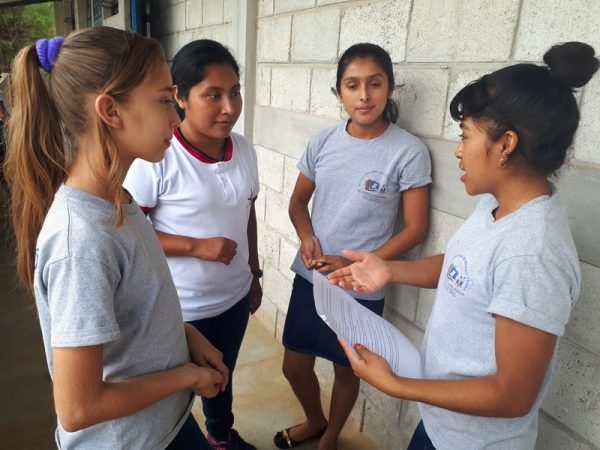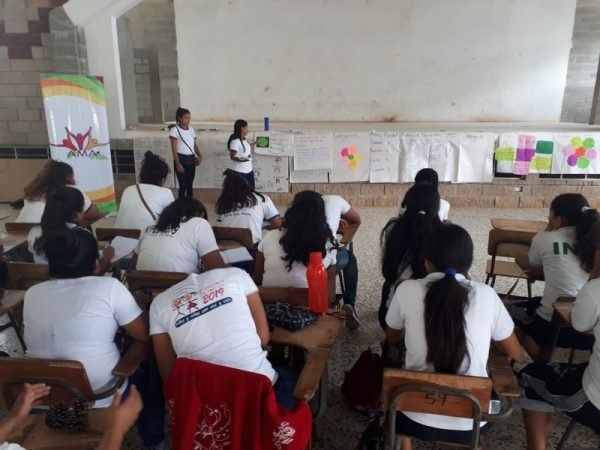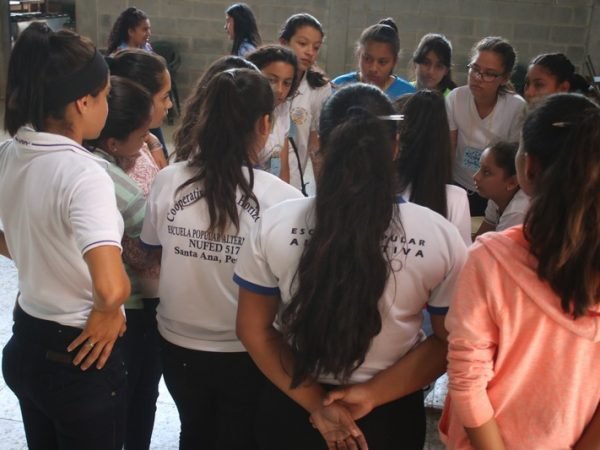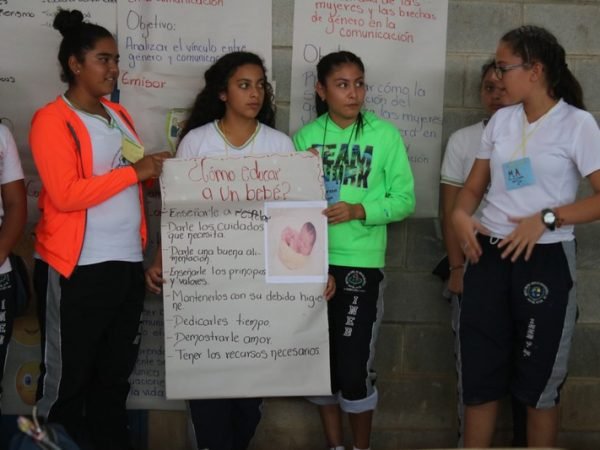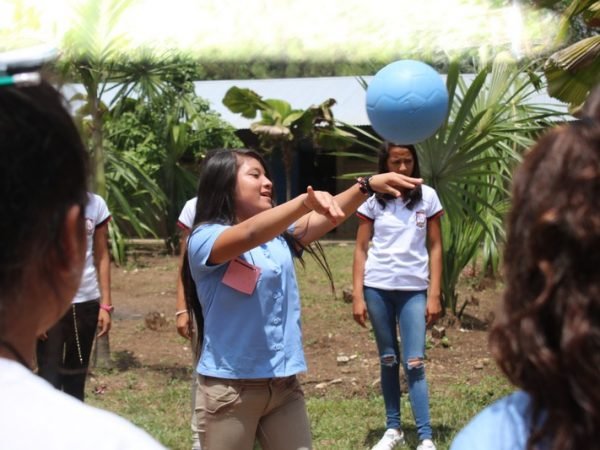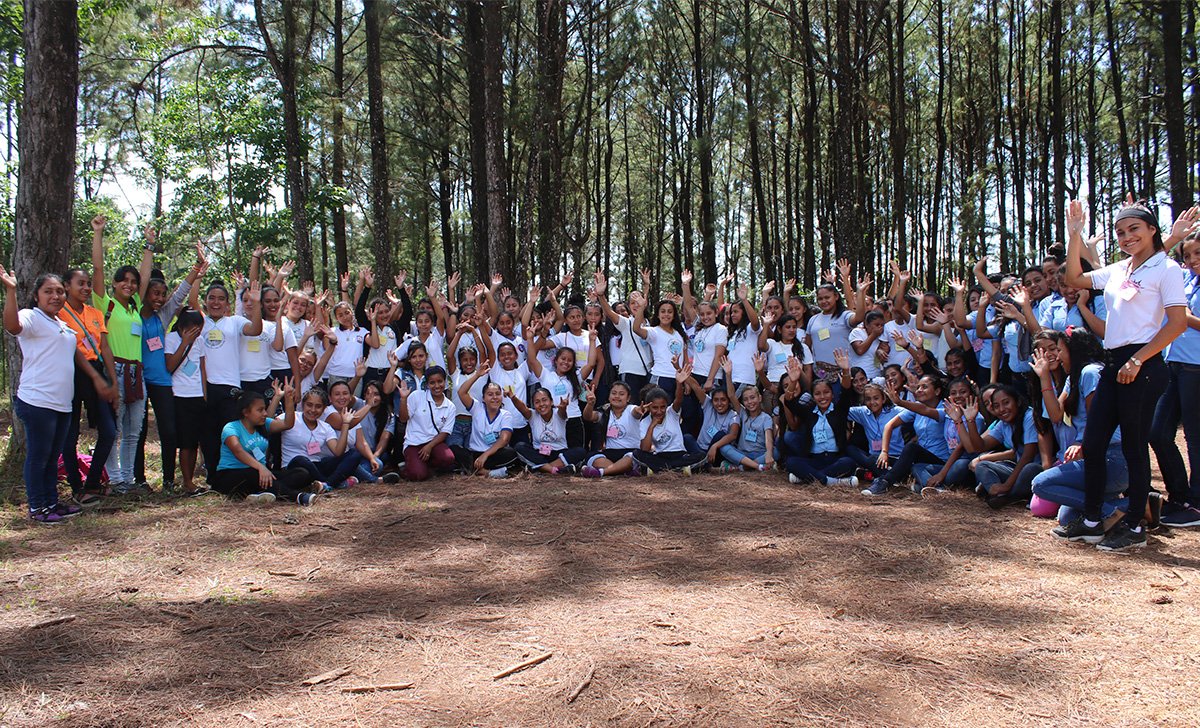
Start Date: Mar/2019
End date: Oct/2019
90 young women
Project Description:
With the implementation in 2019 of the "Personal Advancement and Career Enhancement Program (P.A.C.E.)", continuity was given to the P.A.C.E. training program initiated in 2018 in Southern Petén, expanding the number of young women beneficiaries in five municipalities of Southern Petén.
In this sense, the proposal was directed to a new group of 90 young women, between 16 to 19 years of age from communities and marginalized urban areas Maya Q'eqchí and Ladinas living in conditions of poverty in the municipalities of San Luis, Poptún, Dolores, El Chal and Santa Ana, Southern Petén.
The initiative was designed to strengthen their life skills so that they can effectively face the challenges of daily life, in order to break the cycle of poverty and violence and reduce the number of pregnancies in the area of influence.
These skills were strengthened by taking four modules of the PACE program, which are: 1) Communication; 2) Time and Stress Management; 3) Problem Solving and Decision Making; and 4) General and Reproductive Health.
This new process allowed AMA to continue to achieve its objectives, expand its work coverage, and have an impact on the prevention of pregnancies and sexual violence, as it will continue to work directly with young women in southern Petén, where historically there have been high rates of pregnancies and sexual violence in girls and adolescents between 10 and 19 years of age.
2019 Activities
Direct beneficiaries:
-
-
-
- 90 young women, aged 16 to 19 years old from Mayan Q'eqchí and Ladina communities and marginal urban areas living in conditions of poverty in the municipalities of San Luis, Poptún, Dolores, El Chal and Santa Ana, Southern Petén.
-
-
Indirect beneficiaries:
-
-
-
- 360 young women, between the ages of 16 to 19 years old from Mayan Q'eqchí and Ladinas communities and marginal urban areas living in conditions of poverty in the municipalities of San Luis, Poptún, Dolores, El Chal and Santa Ana, Southern Petén, who benefit from the transfer of the knowledge and actions that the 90 participants carry out, after their participation in the camps.
-
-
2019 Project implementation
With the implementation in 2019 of the "Personal Advancement and Career Enhancement Program (P.A.C.E.)", continuity was given to the P.A.C.E. training program initiated in 2018 in Southern Petén, expanding the number of young women beneficiaries in five municipalities of Southern Petén.
To achieve the objective, the following activities were implemented:
A1. 4 Feminist Interactive Training Camps "CAFFEMI" with WIN women.
Four "CAFFEMI" Feminist Interactive Training Camps were held with WIN women, in which 90 beneficiaries from marginalized Mayan Q'eqchí and Ladina communities and urban areas of the municipalities of San Luis, Poptún, Dolores, El Chal, and Santa Ana, in southern Petén, Guatemala, will participate.
The group of participants was divided in two (40 per group), so each group was formed and trained by two Mayan Q'eqchí and Ladina trainers from the AMA Association during each camp, which took place in the municipality of Poptún, Petén since it is the center of convergence of Southern Petén and has adequate facilities and spaces for its realization.
Each camp lasted a day and a half each (13 hours each) during which the participants were trained in topics centered on the four modules of the PACE program which are the following: 1) Communication; 2) Time and Stress Management; 3) Problem Solving and Decision Making and 4). General and Reproductive Health.
The camps were facilitated by four Maya Q'eqchí and Ladinas trainers from AMA, who used the inductive-deductive "learning by doing" methodology, which will strengthen the teaching-learning process.
In the evenings of the first day of each camp, sports, recreational or cultural activities were carried out, which were focused on promoting feminist dialogues on the importance of preventing pregnancies and sexual violence to better achieve life plans and promote the prevention of the problems described above.
The proposal is part of a global initiative that seeks to promote life skills in girls and young women in Central America, which seeks to contribute to the economic empowerment of 35,000 girls and women through the global P.A.C.E. program for 2020, which is being promoted by Women Win, with funding from the GAB Foundation.
Therefore, the AMA association is contributing to the implementation of the PACE program together with the collectives: Las Diosas and Organización de Mujeres de Santa Marta, both from the Republic of El Salvador, in addition, the organizations Jóvenes que Creemos en Otros Jóvenes and Grupo de Mujeres Xitlalí, these from the country of Nicaragua, Central America.
- 90 young women from marginalized Mayan Q'eqchí and Ladina communities and urban areas increased their life skills, enabling them to communicate assertively, make better decisions about their lives and sexuality, and better manage their time and stress caused by the challenges of daily life.
In the southern municipalities of the department of Petén, although the majority of the population are girls and women (51%) who live in rural communities and marginal urban indigenous and Ladino areas (79.2%), they must face adverse conditions that do not allow them to fully develop their potential and thus achieve full human development, since most live in conditions of poverty (59.3%) and extreme poverty (23.4%).
The donor who funded this project
In alliance with:



